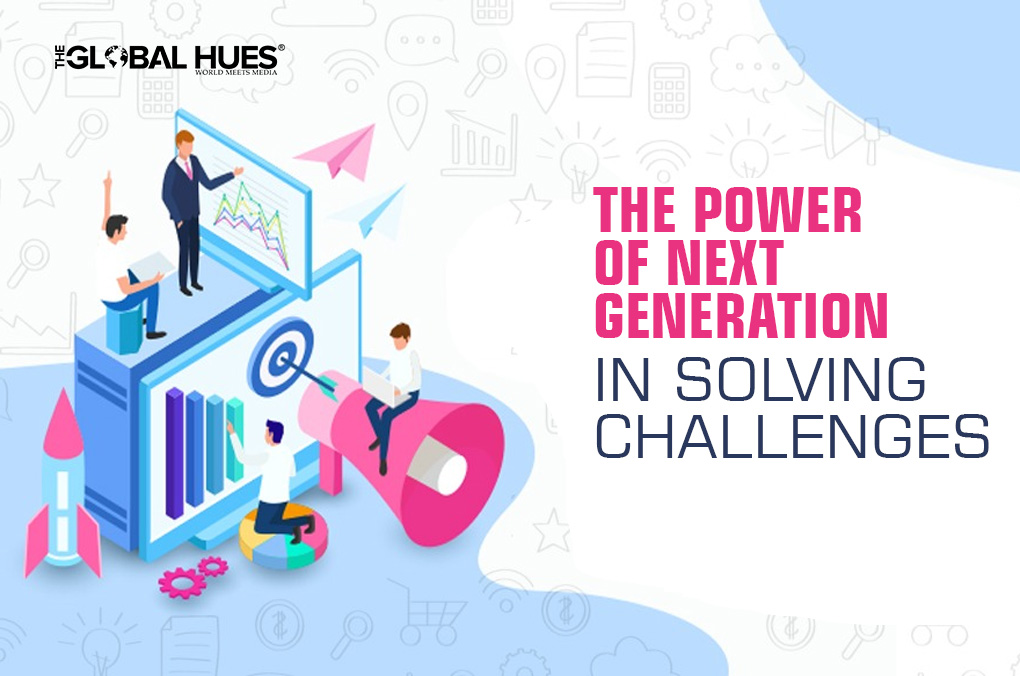In the contemporary world, the load to tackle the challenges and problems falls on the shoulders of the next generation. And why not? This generation is filled with empowered and empathetic young people with adequate knowledge of Science and Technology. If shaped and guided wisely, there is a real chance of solving the existing problems that plague the modern world.
There is a wide range of challenges that the world is facing today; From climate change to marine conservation, but alongside each individual having a unique set of skills and experiences, there is a pretty good chance that these problems can be solved.

HOW TO PREPARE THIS GENERATION?
By giving time to focus on the problems of today, the youth is investing and believing in a better future. They are the changemakers and the believers and it is going to be them who need to get the smart work done. A new generation of leaders, scientists, innovators, and creatives must put themselves out there to change the world. But it is not easy to figure out where to start from, so here are some points youth can focus on.
-
Personal Connection
Before any real progress can be made, the first step to solving these global issues is to develop an understanding of the environmental and social challenges in a local context, and their relevance on a personal level. The influence of these issues can often seem overwhelming and this is the reason why it’s so important to remember that each life brings unique experiences with a diverse and nuanced view of the world around us, and with it, different and new solutions. Individual power and insight are not to be taken for granted in tackling the biggest problems people and the planet are facing right now.
-
Technology
Technology innovation is changing the way we work on a scale never experienced before. Digital transformation is causing an incredible change that is motivating people to work on their skills development. It is smart to use digitization to help solve some of the world’s most challenging problems like water scarcity, hunger, income inequality, environmental degradation, poverty, migration, and even unemployment.
These problems impact global institutions, organizations, enterprises, and individuals. So, for countries to thrive in this new digitized world, the upcoming generation must know how to apply technology to use.
For this, we need to focus on improving education and training programs. Changes must include transforming the educational curriculum to spread awareness of the transition to digitization and developing courses for emerging technology careers.
-
Build opportunities
In the age of the Internet of Everything, information can even predict an asthma attack. Imagine a developed ecosystem that allows people from all backgrounds to build the skills needed to drive the digitization process, find jobs, and bring creative ideas to market. To achieve this goal, there is a dire need to create a clear path to engage this generation and help them to become the new generation of global problem solvers. Today’s innovative generation think like entrepreneurs and act as social change agents.
Governments, companies, and educational institutions need to create regional strategies to help develop the volume and uniqueness of skills and competencies required for countries to take advantage of digitization.
The world needs millions of people to fill the information and communications technology jobs in every country in various fields. Careers in digitization are becoming more complex as a result of the digital revolution, where smarter connections are being made between people, processes, data, and things.
Finding out new solutions with employers, educators, industry leaders, and social changemakers to co-create experiences, and business models that set learners on a solid path to employment or job creation can be a good choice.
-
Creating the jobs of tomorrow
Along with building the skills needed for the jobs of today and connecting individuals to the jobs of the future, it is important to generate entirely new ideas and industries that will create the jobs for tomorrow.
Incubator programs increase the chances of success by helping good ideas to mature into adequate market solutions and accelerating the product or service’s time to market. There are reportedly 4,400 university incubator-related programs around the world, on an average creating 350 jobs a year.
If those incubators are linked to a virtual network to share best practices and collaborate more effectively, it could lead to millions of jobs over five years. The impact also influences different sectors such as healthcare, education, and the environment.
Developing a global incubator network would help people from all backgrounds to bring creative ideas to market and launch startups that generate more jobs. This would also align with the growing interest among youth in entrepreneurship.
To make this successful, nonprofits, non-governmental organizations, and community-based organizations around the world need to work together.
When people come together they find innovative solutions and when the technology is used optimally, we can multiply their impact and uncover even greater opportunities.
By working together, the country can prepare a new generation of global problem solvers armed with all the tools, knowledge, and experience they need to change the world.




